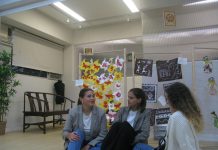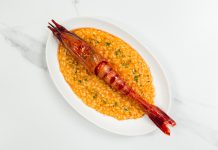Founder Chan Wing-chi, says Yau Ma Tei is a place that always leaves you craving for more. “Of all the old neighbourhoods in Hong Kong, I think Yau Ma Tei is the one that has been most completely preserved. You can still feel a sense of neighbourhood, where people nod to you when you see them,” he says.
Chan uses his earnings from importing and selling CDs to pay the rent for the space and he does not make any money from it. Yet, he believes in running a space that can be shared by the neighbourhood, and where members of the community can decide whether to use it as a place for a chat over tea, as a barter shop, a bookstore, an art space or a second home.
Usually, the kaifong go to Two just to chat, drink or idle away time with Chan, and some local South Asian kids come over to use the computer every evening.
Jimmy, whose bicycle shop is nearby, appreciates Chan’s efforts to preserve the community bonds. He feels that people are more distant from each other now, whereas in decades past, neighbours chatted with, cared about and helped each other.
“People recognize all their neighbours and help you look after your children. This kind of care is not out of wanting to earn 10 dollars more from you.”
Contemporary Yau Ma Tei is not only managing to preserve some of the ethos of old community ties, it is also playing a role in preserving other traditional elements. The area is also home to the Yau Ma Tei Theatre, built in 1930 and the only surviving pre-World War Two cinema in Hong Kong.
After decades of neglect, the building was recently re-opened as a venue for Cantonese Opera.
“Yau Ma Tei is an old community that has always had a link with Cantonese Opera,” says Alisa Shum Kam-sin, chief executive of the Chinese Artists Association of Hong Kong, an association of Cantonese opera groups and artists. Shum says there used to be a theatre for Cantonese opera in Yau Ma Tei and many people in the industry used to frequent the area.
The association is now partnered with Yau Ma Tei Theatre to run the Experience Cantopera Programme. Although the Theatre has a relatively small auditorium with just 300 seats, Cantonese opera lovers are still glad they have a new place for more upcoming opera troupes to perform.
Shum notes with satisfaction that many kaifong are going to the theatre and hopes the Yau Ma Tei Theatre and the programme can have “synergy” with the other rich local cultures of Yau Ma Tei.
In the next few years, Hong Kong can look forward to what is being touted as a world-class multi-billion dollar arts hub in West Kowloon. But as much as they embrace the arts, the artists and cultural workers in nearby Yau Ma Tei will be hoping their turf can preserve its unique culture and appearance. As HULU Culture’s Simon Go puts it: “It is not about hindering development but making an effort to preserve what is worth preserving within our ability.”






































